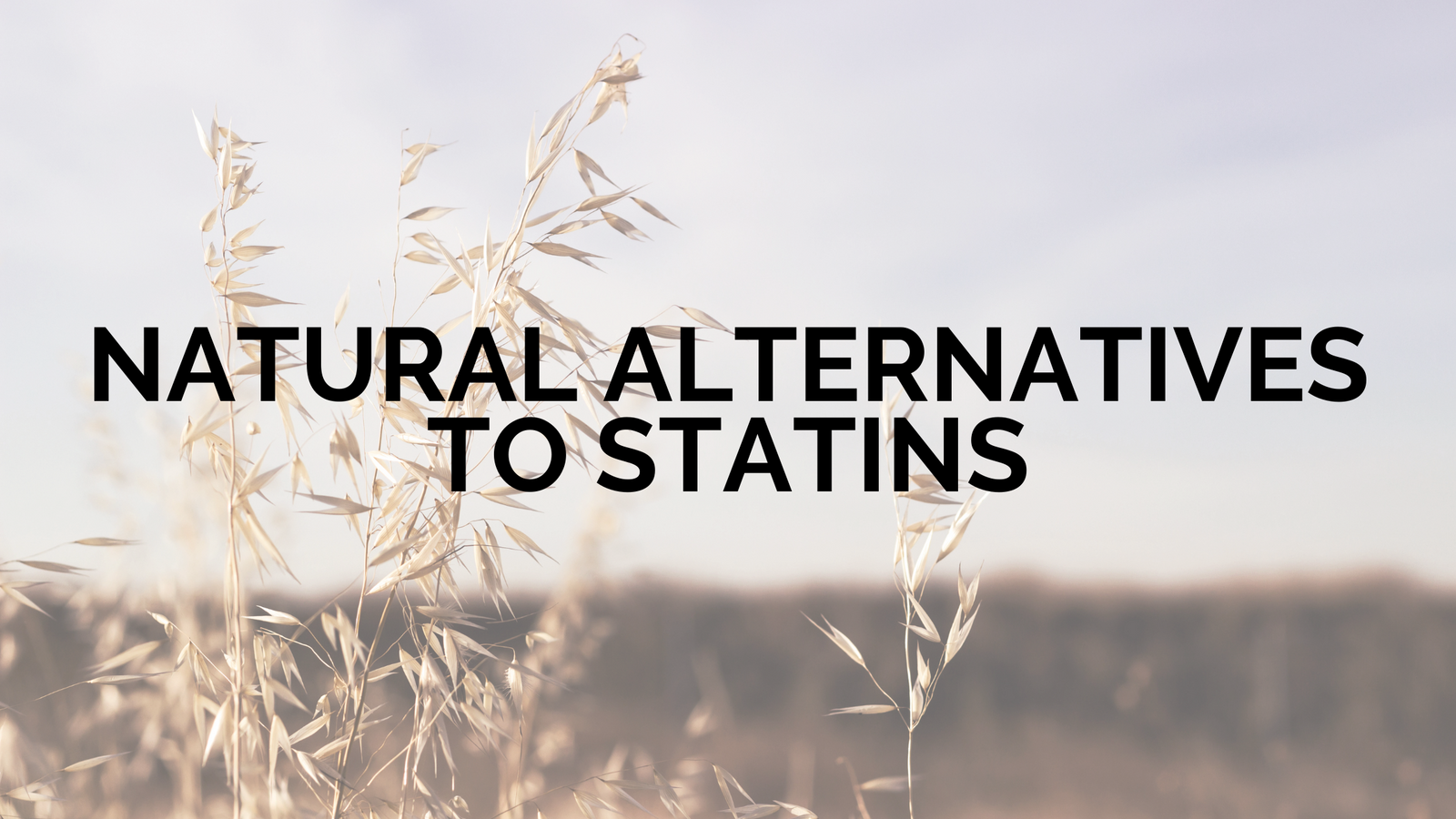Natural Alternatives to Statins

--
A visit at the doctors' office
Most doctors prescribe statins for people with high cholesterol. The conversation often sounds something like this:
Doctor: "We just got the results back from your blood work, and it shows that your LDL cholesterol is above where it should be. What this means is that you have high cholesterol, and we need to lower it. In order for us to bring your cholesterol level down, we can prescribe you with statins."
Does this sound familiar?
The doctor will likely write you a prescription for one of the many statin drugs available today. These include:
- Atorvastatin (Lipitor)
- Fluvastatin (Lescol XL)
- Lovastatin (Altoprev)
- Pitavastatin (Pravachol)
- Pravastatin (Pravachol)
- Rosuvastatin (Crestor, Ezallor)
- Simvastatin (Zocor, FloLipid)
While statins have all been clinically proven to lower LDL cholesterol levels and therefore reduce your risk of heart disease, heart attack, and stroke, they do come with some worrying side effects. These can include:
- Muscle disorders (Myopathy)
- Increased risk of type 2 diabetes mellitus
- Hemorrhagic stroke
- Deficiency of Vitamin D
- Dizziness
- Digestive problems
- Low blood platelet count
- Liver damage (rare cases)

Is it just me?
If you have had a similar conversation with your family doctor, rest assured that you are not alone. Almost 2.8 million Canadians between the age of 20 to 79 were being treated for high cholesterol with statin drugs between 2007 to 2011 (Hennessay, et. al., 2016.).
But wait... There is another way!
Did you know that you can naturally lower LDL cholesterol with foods?
Specific foods such as barley beta-glucan fiber, oat beta-glucan fiber, red rice yeast, and psyllium fiber will lower your total and LDL cholesterol.
- Barley taken in the form of beta-glucan fiber has the highest concentration of beta-glucan. This is the most effective natural alternative to statin drugs.
- Oats taken in the form of bran or whole oats have a good amount of beta-glucan, but are not as effective as barley.
- Psyllium is a form of fiber made from the husks of the Planto Ovata plant seeds. Studies have shown that taking psyllium can lower cholesterol, but you will need to take a higher amount to see the results. Also, consume plenty of water.
- Red Rice Yeast is a type of yeast that is grown on white rice, it contains monacolin K which lowers cholesterol. However, it has not been studied extensively and it is unclear whether it is truly safe for long-term use (WebMD Medical Reference, 2020).
Below is a chart that outlines these four cholesterol-lowering foods, the required dosage, and the effect on your LDL cholesterol:
|
Type |
Amount needed/day |
LDL cholesterol reduction |
Health claim link |
|
Barley Beta Glucan Fiber |
3 grams |
0.0-8.0% |
|
|
Oat Beta Glucan Fiber |
3 grams |
0.15-4.0% |
|
|
Psyllium Fiber |
7 grams |
|
|
|
Red Rice Yeast |
unknown |
unknown |
none |
Barley beta-glucan is approved by Health Canada, the FDA, and EFSA as a natural health product that has a disease risk reduction or therapeutic benefit in lowering cholesterol.
Barley Beta... What?
Why haven’t we heard about barley beta-glucan before? Simple. The technology to extract barley beta-glucan fiber in high enough concentrations, without using any chemicals, has only recently been developed. This new clean and environmentally friendly technology was developed in partnership with the University of Alberta. This makes barley beta glucan a cost effective, natural alternative to statins.
Concentrated Barley beta-glucan is simple and easy to take. It dissolves in water and other liquids (such as juice), and can be added directly into foods.
What can I take to get Barley Beta-Glucan?
There are 2 brands that are currently offering barley beta glucan concentrates. Cerabeta offers beta glucan fiber, and you can purchase their products online.
With all the negative side effects associated with statins, and the testimonies that further prove their effect on individuals' health, it is clear that many people are looking for a natural alternative to these prescription drugs.
In the case of taking statins, or consuming a natural fibrate, the choice is simple. Natural soluble fibers such as Cerabeta help you reduce your LDL cholesterol levels naturally. Not only will you be moving in the right direction of lowering your cholesterol, but you're doing it in a natural, harmless way, minus all the negative side effects associated with statin drugs.

--
References:
Hennessay, D. A., Tanuseputro, P., Tuna, M., Bennett, C., Perez, R., Shields, M., . . . Manuel, D. G. (2016, January 20). Population health impact of statin treatment in Canada. Retrieved from Statistics Canada - Health Reports: https://www150.statcan.gc.ca/n1/pub/82-003-x/2016001/article/14305-eng.htm
Mayo Clinic Staff. (2020, 01 14). Statin side effects: Weigh the benefits and risks. Retrieved from Mayoclinic.org: https://www.mayoclinic.org/diseases-conditions/high-blood-cholesterol/in-depth/statin-side-effects/art-20046013
WebMD Medical Reference. (2020, November 11). Red Yeast Rice and Cholesterol. Retrieved from WebMD: https://www.webmd.com/cholesterol-management/red-yeast-rice
https://www.accessdata.fda.gov/scripts/cdrh/cfdocs/cfcfr/cfrsearch.cfm?fr=101.81

